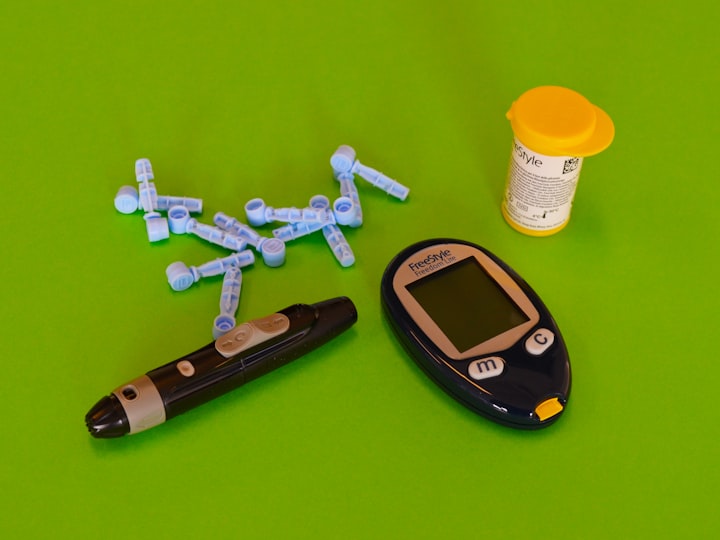Diabetic management: Introduction Diabetes is a chronic condition that affects millions of people worldwide.
Diabetic

It is important to monitor blood sugar levels and eat a balanced diet. Diabetes management is essential for preventing complications and maintaining overall health.
This article focuses on two important aspects of managing diabetes: maintaining a healthy diet and monitoring blood sugar levels. People with diabetes can effectively manage their condition and lead fulfilling lives if they understand the importance of regular blood sugar monitoring and follow a healthy eating plan.
1st Section: Diabetes patients need to keep an eye on their blood sugar levels on a regular basis in order to manage their condition. It aids in making treatment decisions and provides crucial information about the body's glucose processing. For effective blood sugar monitoring, consider the following key considerations:
1. Utilize a glucometer: For accurate readings, purchase a dependable glucose meter and follow the instructions. Follow your doctor's advice to check your blood sugar levels on a regular basis.
2. Keep a log of it: Keep a record of your blood sugar readings so you can see trends and patterns over time. Using this information, you and your healthcare team can make better decisions about how to manage your diabetes.
3. Know your target ranges: Together with your doctor, figure out the right range of blood sugar for your diabetes management goals. Age, type of diabetes, and overall health may all play a role in these ranges.
4. Change your lifestyle and medications: Modifications to your medication, diet, or amount of physical activity may be required in response to your blood sugar readings. You will be able to make well-informed decisions about how to effectively manage your diabetes with regular monitoring.
Second Part: Maintaining a Balanced Diet for Diabetes Management A well-balanced diet is essential for diabetics because it supports overall health, weight management, and blood sugar levels. Consider the following dietary guidelines when managing diabetes:
1. Center around sugars: When compared to refined carbohydrates, complex carbohydrates like whole grains, legumes, fruits, and vegetables have a smaller effect on blood sugar levels. Control portion sizes and spread out your daily carbohydrate intake.
2. Make use of lean proteins: Include plant-based proteins and lean protein sources like poultry, fish, and eggs in your meals. Protein supports muscle health, regulates blood sugar levels, and helps people feel fuller for longer.
3. Choose good fats: Avocados, olive oil, nuts, and seeds are all excellent sources of healthy fats. Without significantly altering blood sugar levels, these fats can help improve heart health and provide sustained energy.
4. Sugary and processed foods in moderation: Avoid sugary beverages, desserts, and processed foods with a lot of added sugar and bad fat. These foods can have a negative effect on health as a whole and spike blood sugar quickly.
Final thought:
Maintaining a healthy diet and keeping tabs on blood sugar levels are essential to diabetes management. Monitoring one's blood sugar on a regular basis enables individuals to make any necessary adjustments to their diabetes management plan and provides valuable insights for treatment decisions.
Healthy fats, lean proteins, and complex carbohydrates are all important components of a well-balanced diet that helps maintain stable blood sugar levels and improves overall health. People with diabetes can effectively manage their condition, lower their risk of complications, and lead fulfilling lives by incorporating these practices into their daily lives and collaborating closely with healthcare professionals.
Keep in mind that diabetes management relies heavily on regular blood sugar checks and a well-balanced diet, allowing patients to take charge of their condition and put their health first.
In addition to blood sugar monitoring and a balanced diet, there are several other strategies that can contribute to effective diabetes management. These strategies focus on lifestyle modifications and self-care practices to support overall health and well-being
About the Creator
Healthy Lifestyle the story
I am content writer for articles. I have also provided need articles everywhere. I like articles writer for time to time services provided also customer.






Comments
There are no comments for this story
Be the first to respond and start the conversation.